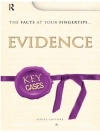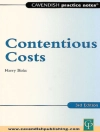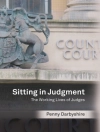This book addresses the fundamental ethical and legal aspects, penal consequences, and social context arising from a citizen’s acceptance of guilt. The focus is upon sentencing people who have pleaded guilty; in short, post-adjudication, rather than issues arising from discussions in the pretrial phase of the criminal process. The vast majority of defendants across all common law jurisdictions plead guilty and as a result receive a reduced sentence. Concessions by a defendant attract more lenient State punishment in all western legal systems. The concession is significant: At a stroke, a guilty plea relieves the State of the burden of proving the defendant’s guilt beyond a reasonable doubt, and in open court. Plea-based sentencing has become even more visible in recent years.The book provides insightful commentary on the following questions: – If an individual voluntarily accepts guilt, should the State receive this plea without further investigation or any disinterested adjudication?- Is it ethically acceptable to allow suspects and defendants, to self-convict in this manner, without independent confirmation and evidence to support a conviction? – If it is acceptable, what is the appropriate State response to such offenders?- If the defendant is detained pretrial, the ability to secure release in return for a plea may be particularly enticing. Might it be too enticing, resulting in wrongful convictions?
Jesper Ryberg & Julian V Roberts
Sentencing the Self-Convicted [EPUB ebook]
The Ethics of Pleading Guilty
Sentencing the Self-Convicted [EPUB ebook]
The Ethics of Pleading Guilty
Achetez cet ebook et obtenez-en 1 de plus GRATUITEMENT !
Langue Anglais ● Format EPUB ● Pages 320 ● ISBN 9781509957446 ● Éditeur Jesper Ryberg & Julian V Roberts ● Maison d’édition Bloomsbury Publishing ● Publié 2023 ● Téléchargeable 3 fois ● Devise EUR ● ID 8852522 ● Protection contre la copie Adobe DRM
Nécessite un lecteur de livre électronique compatible DRM












